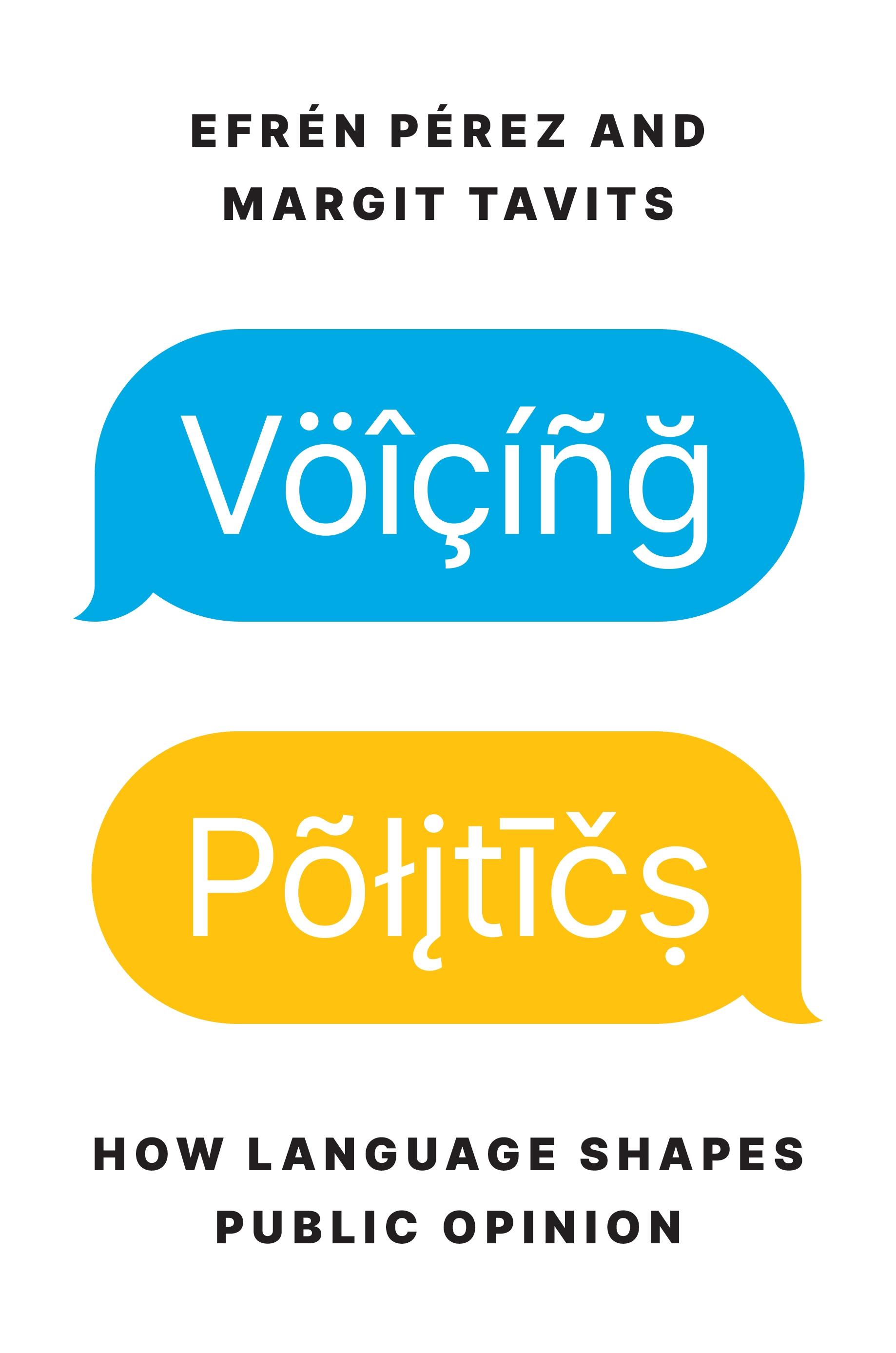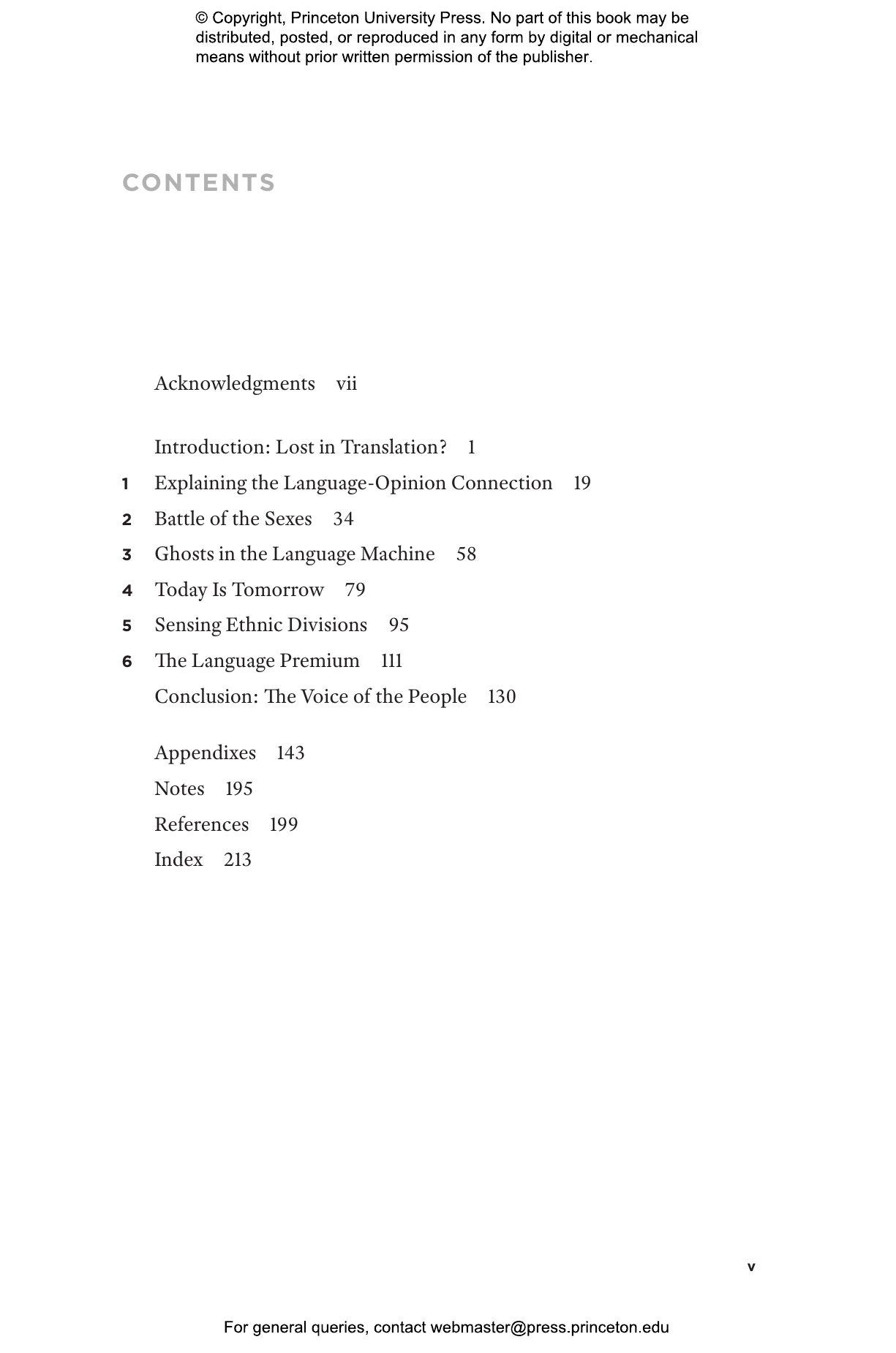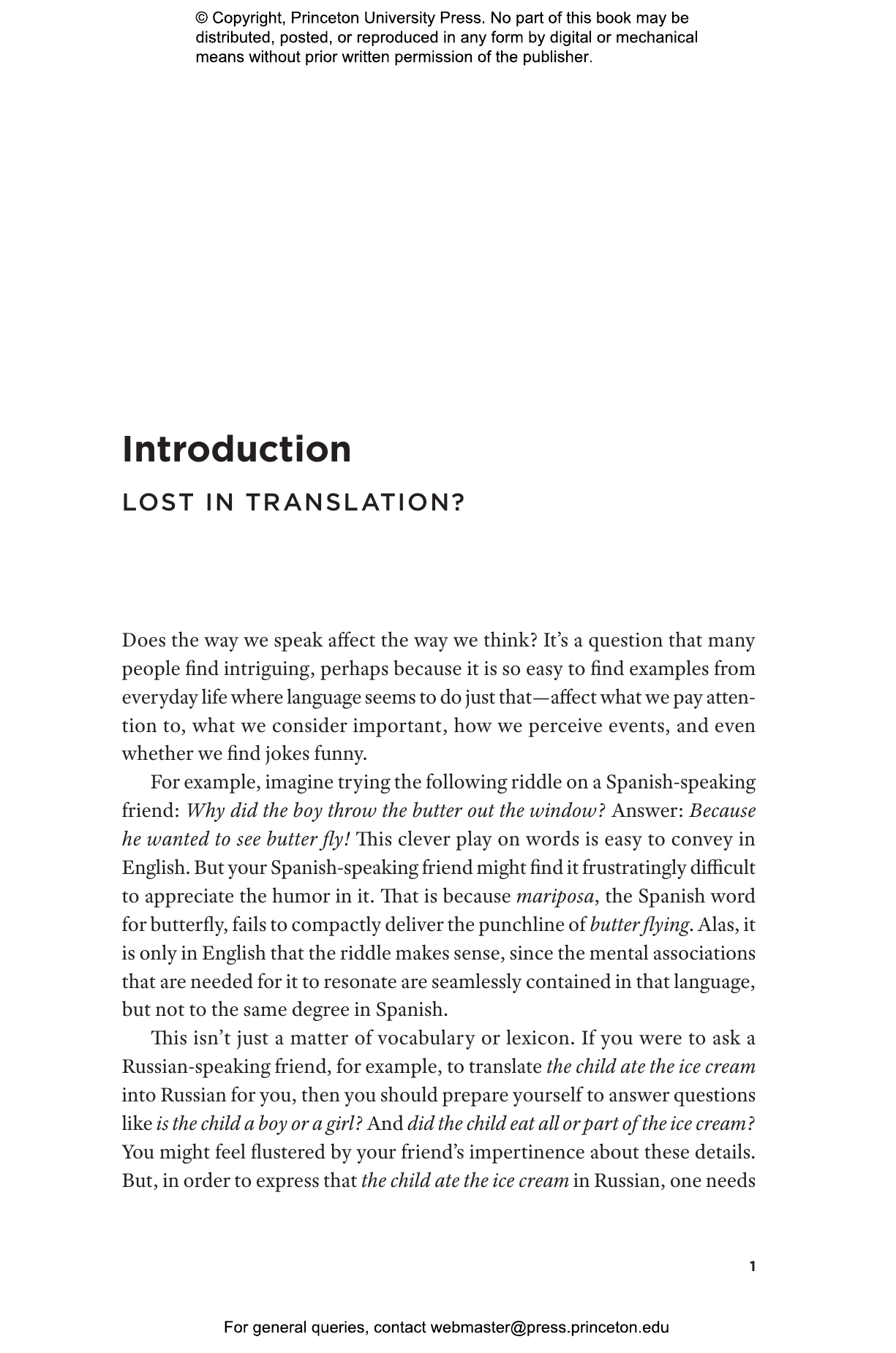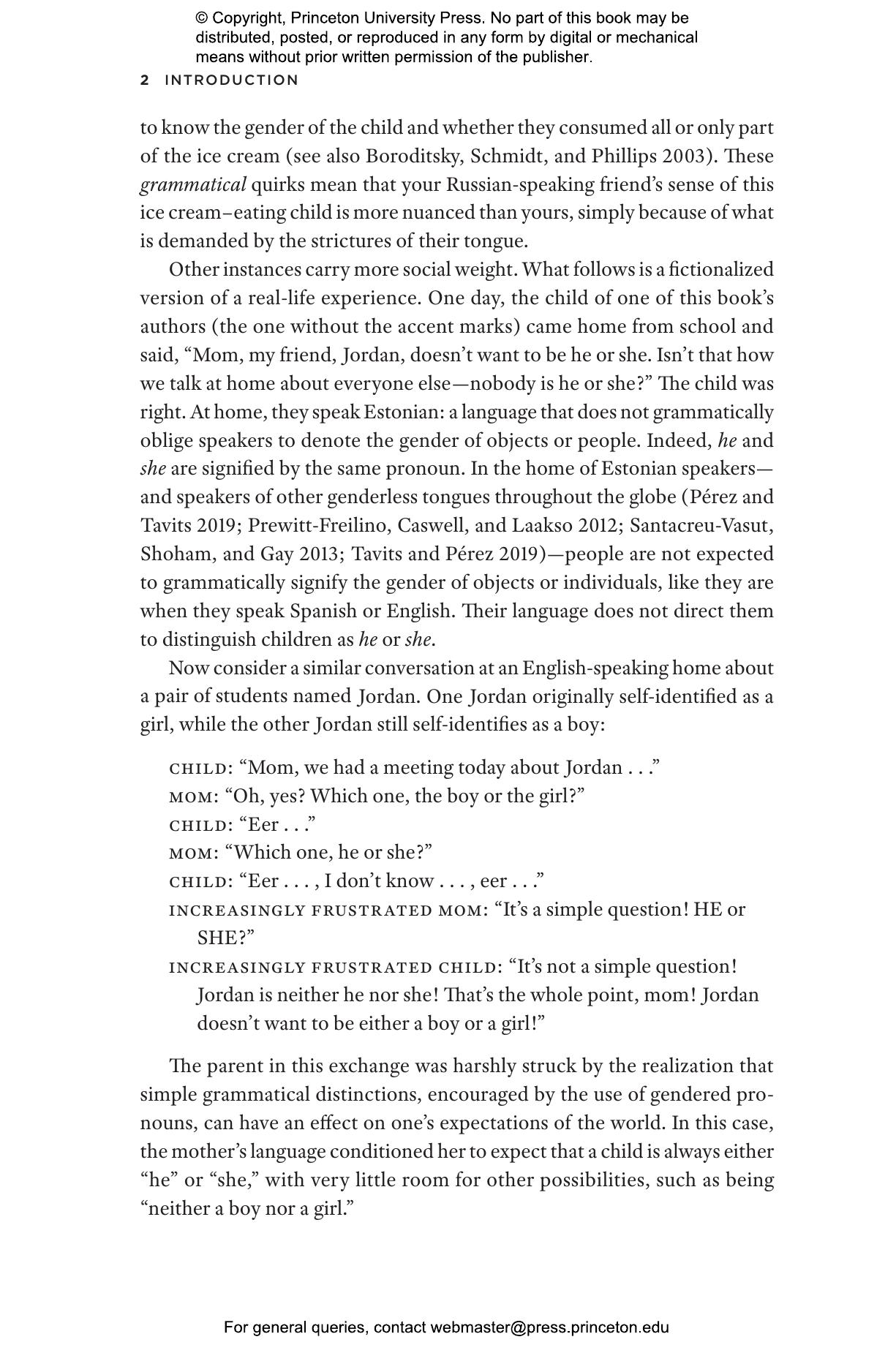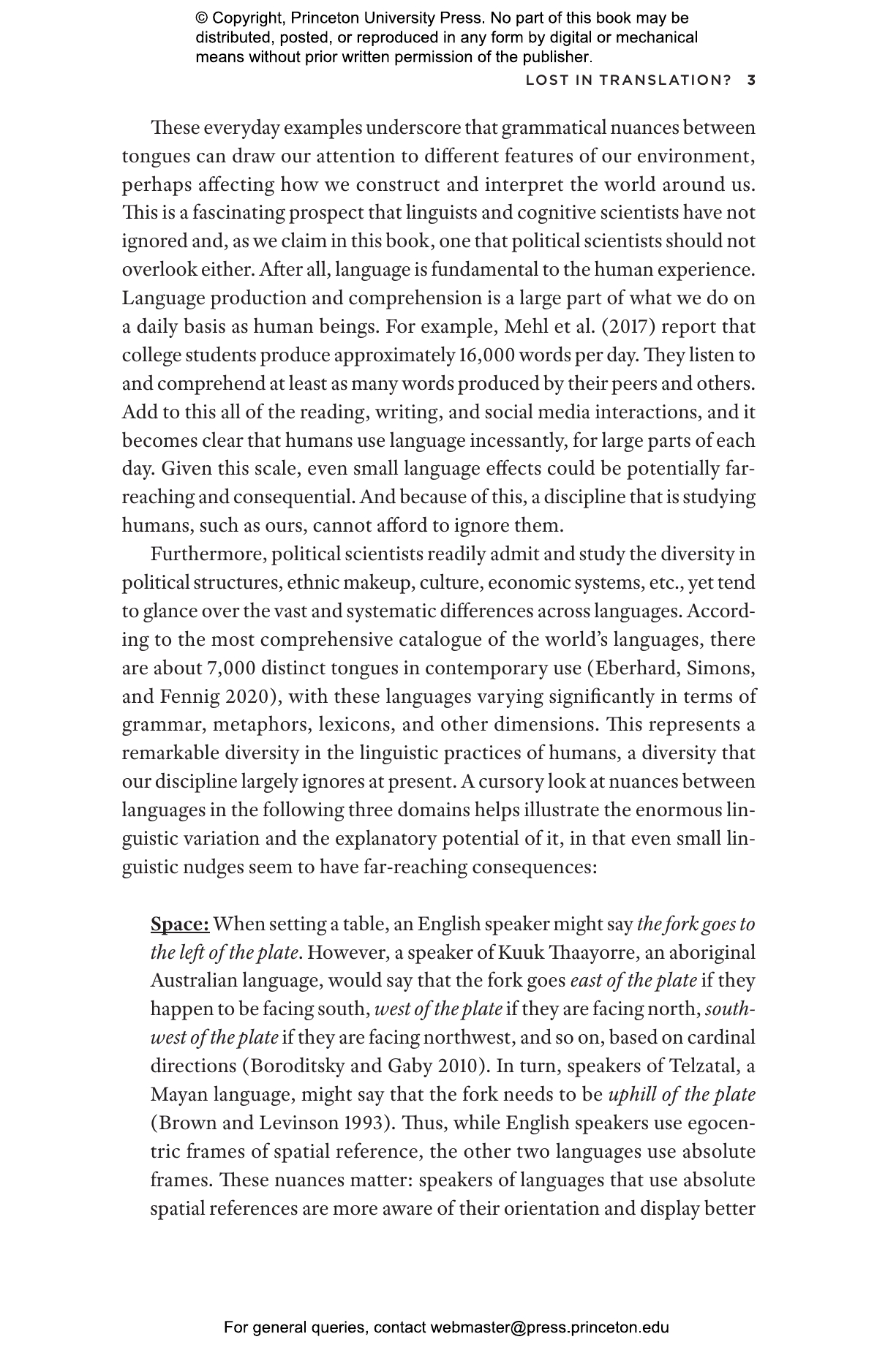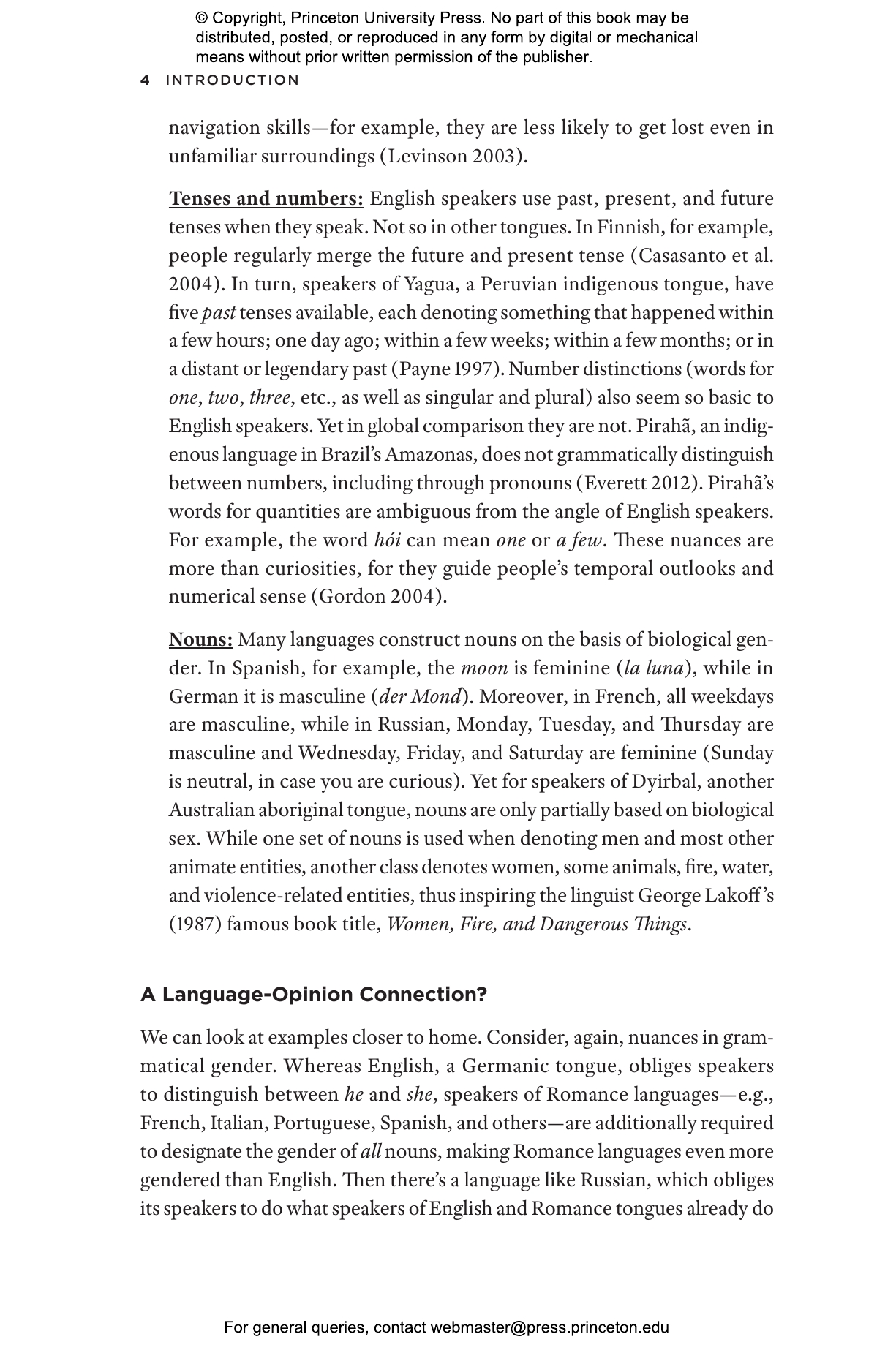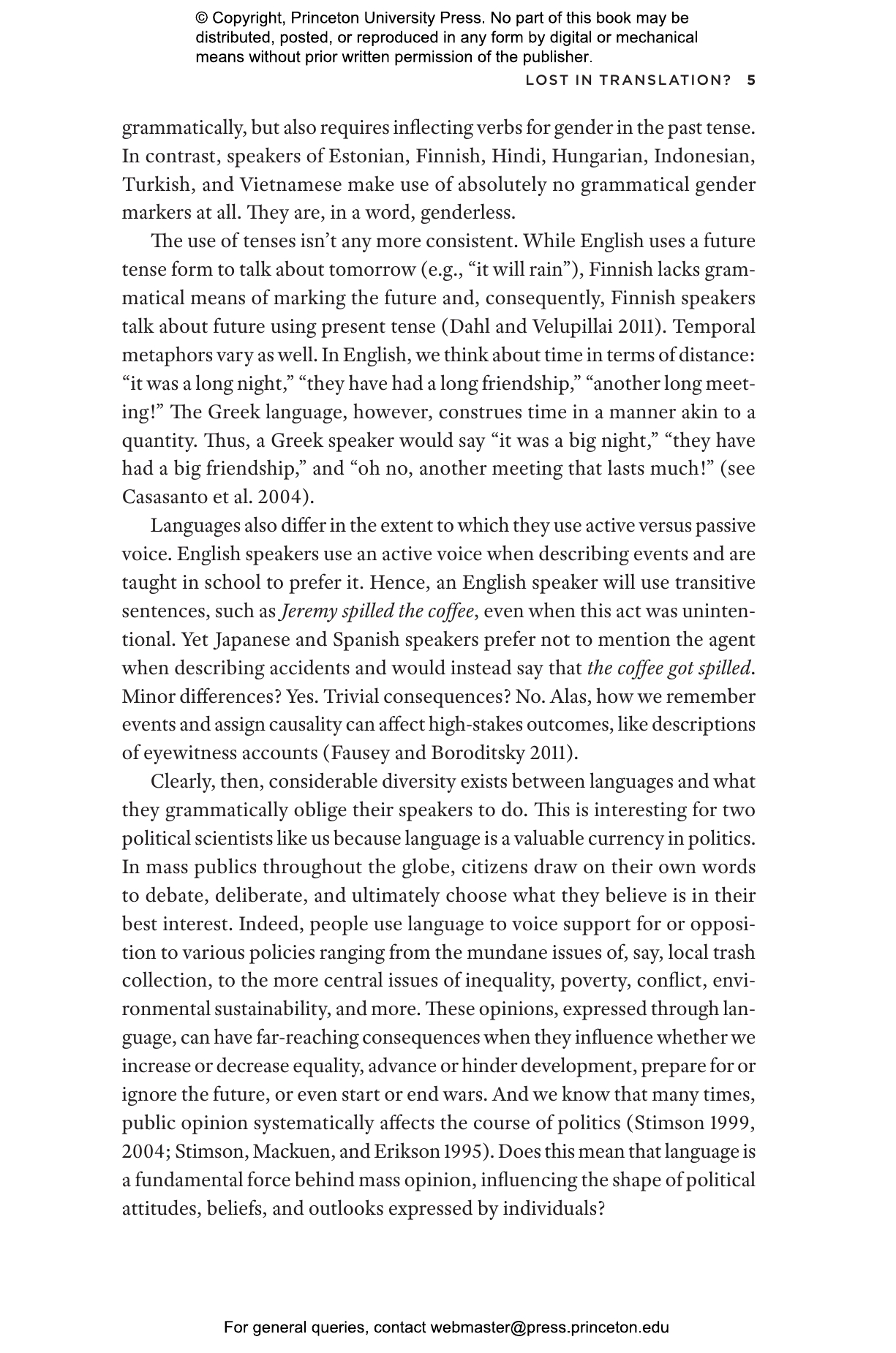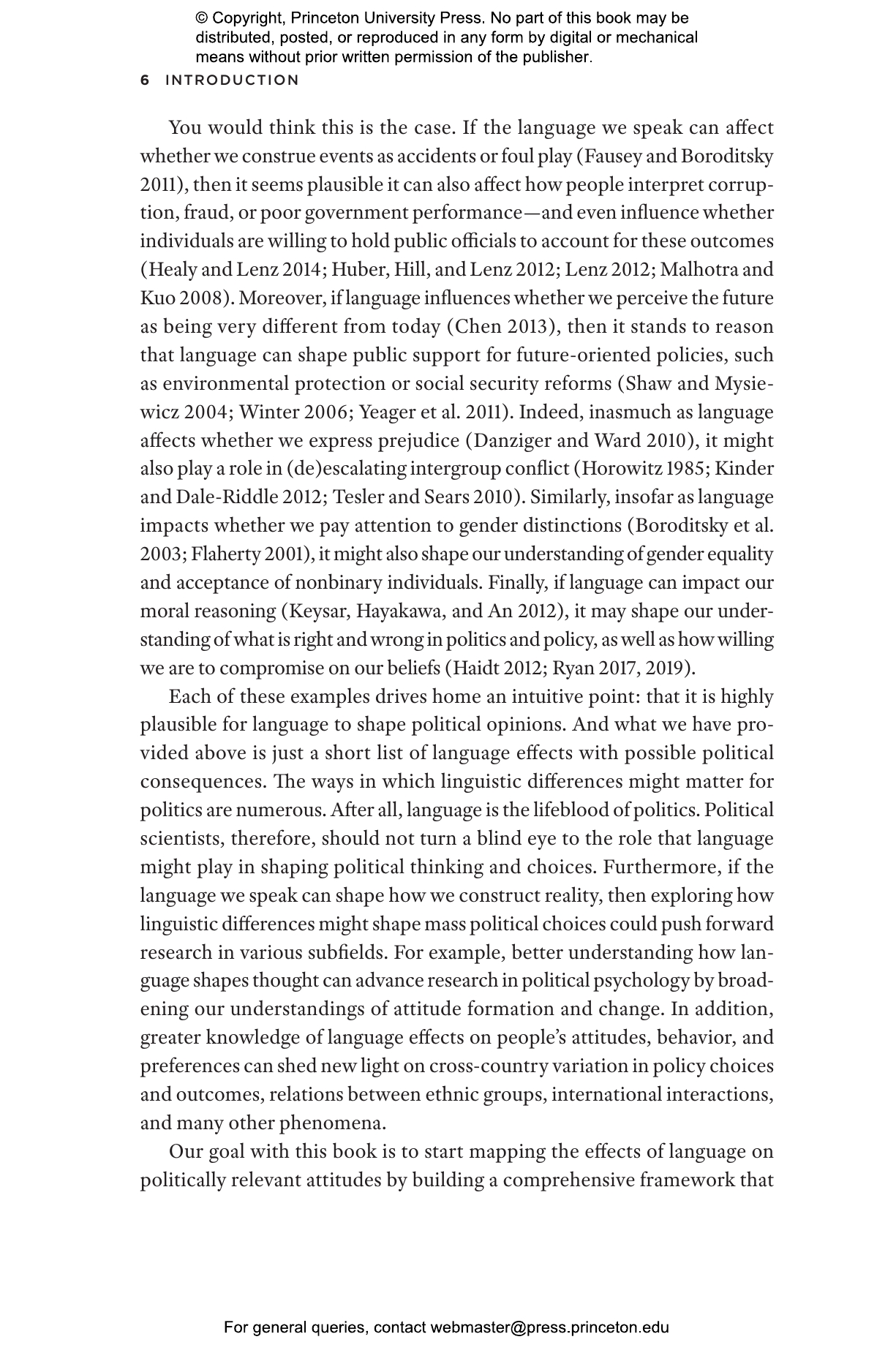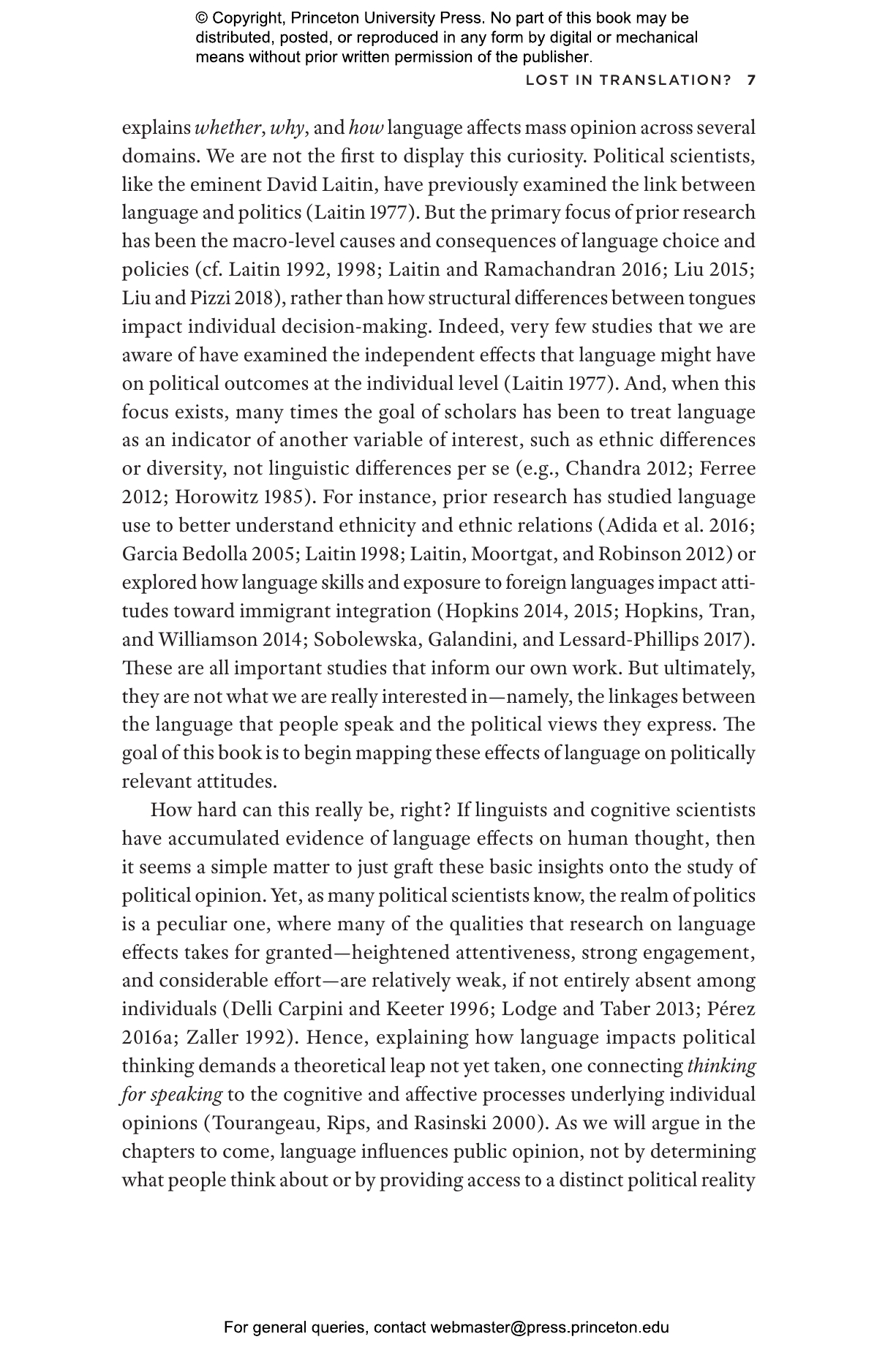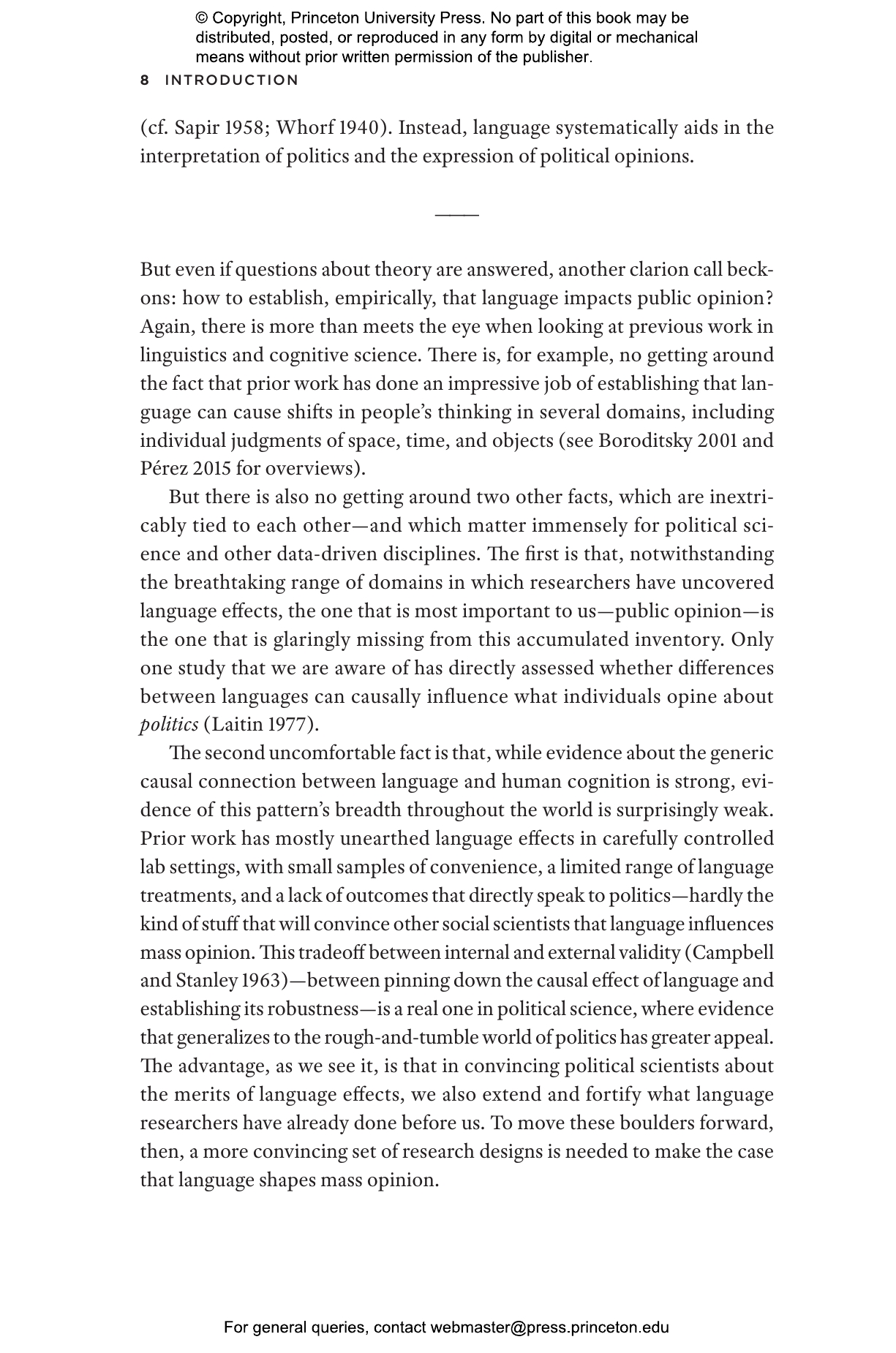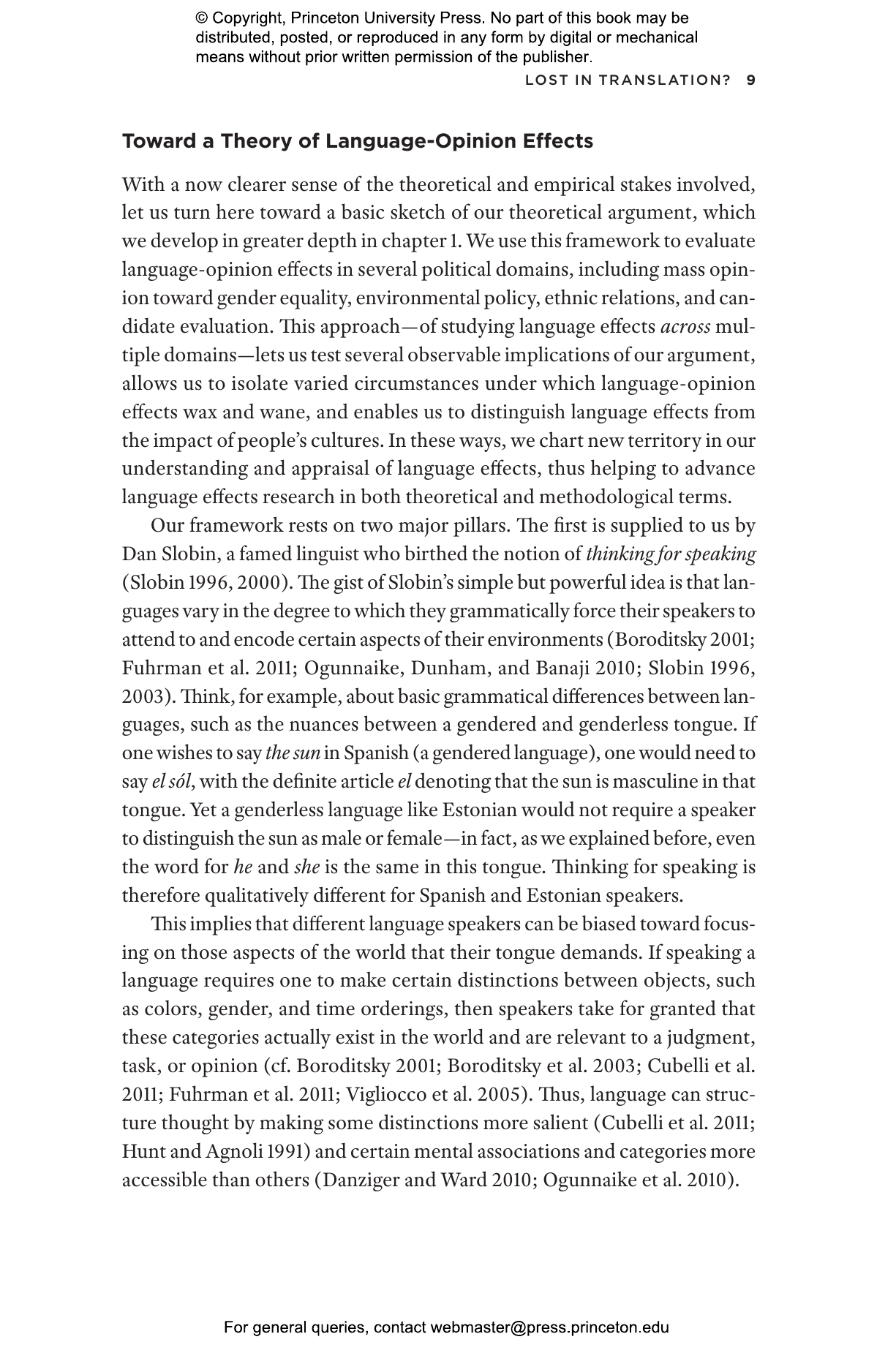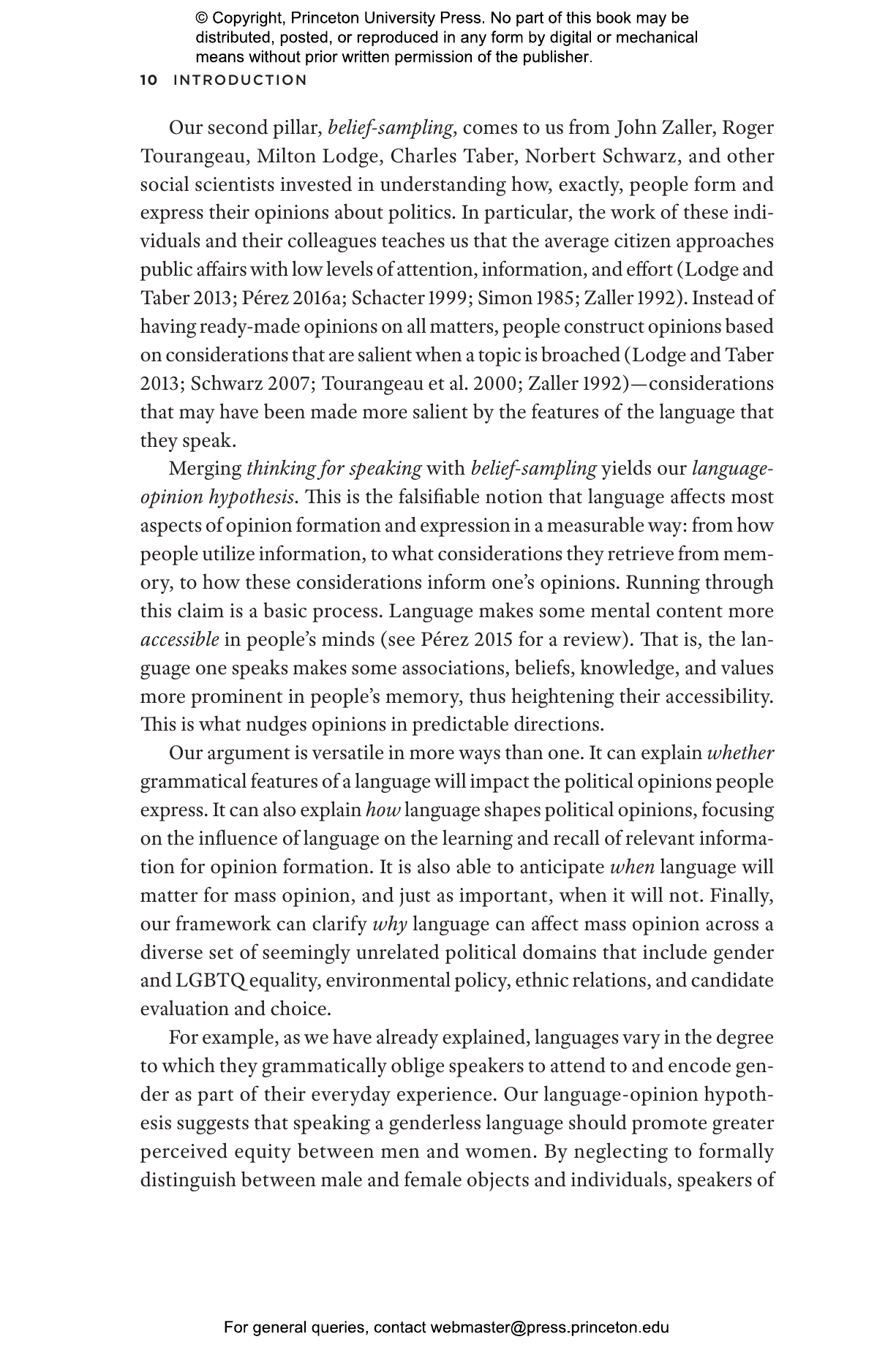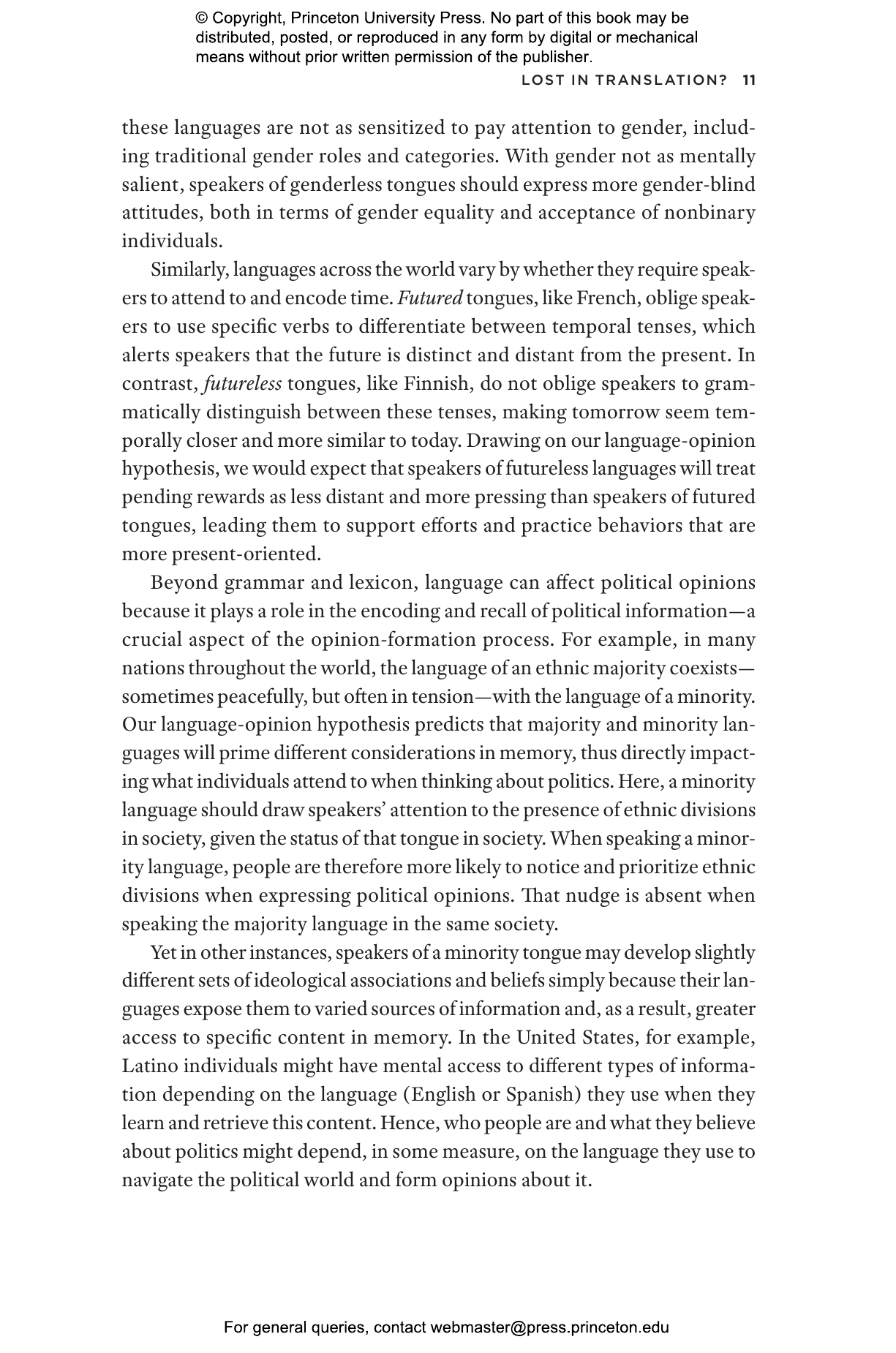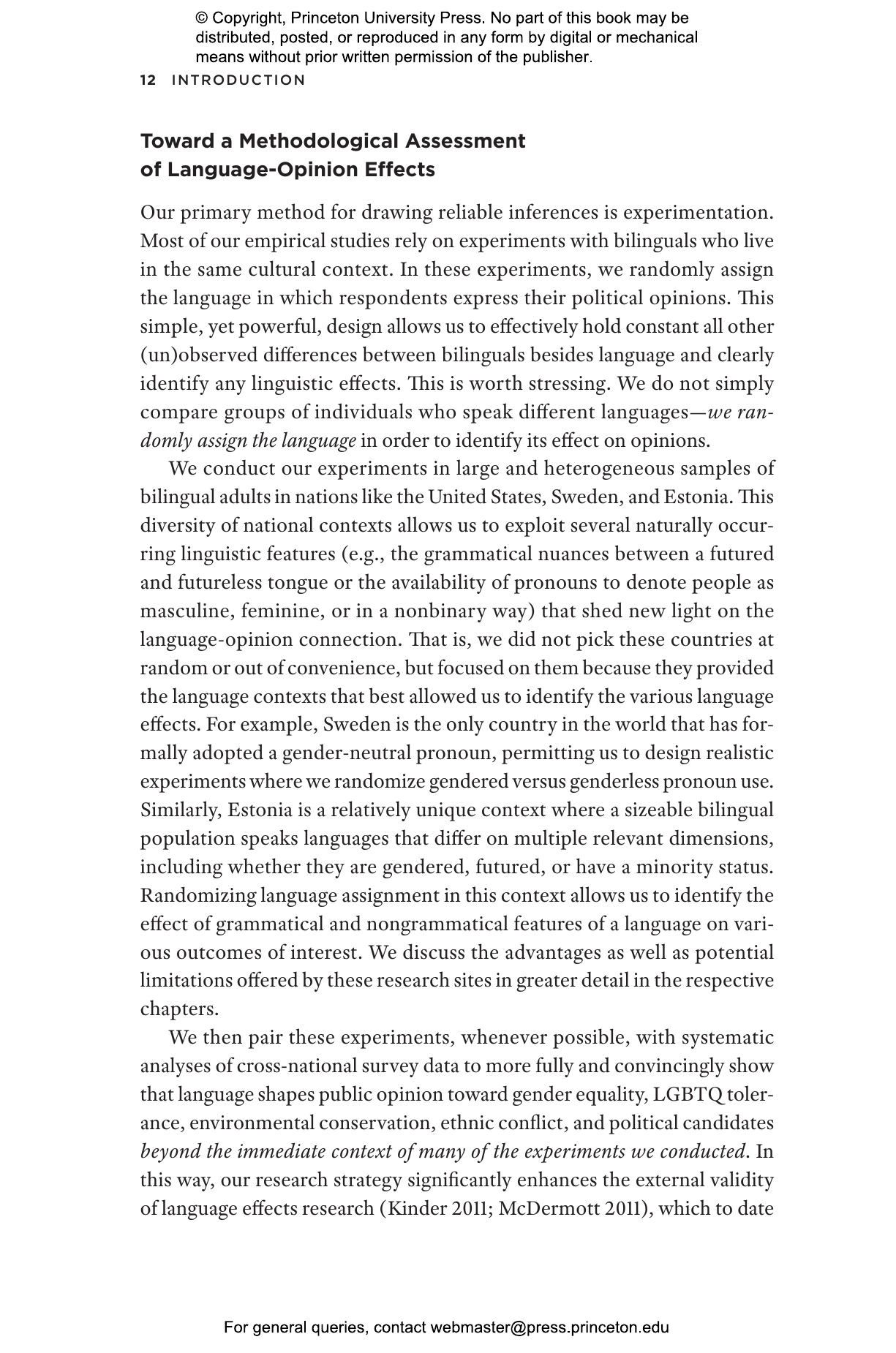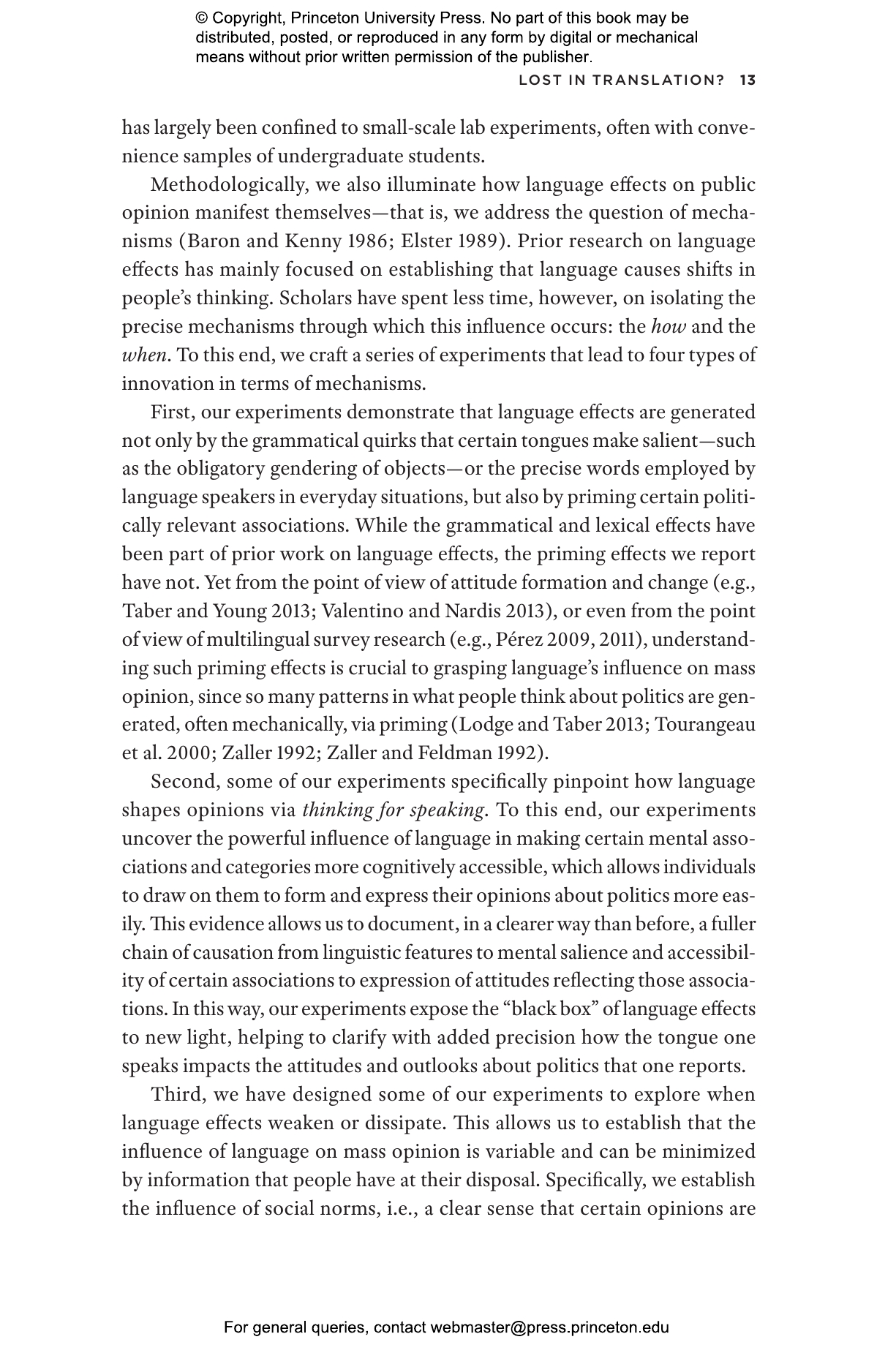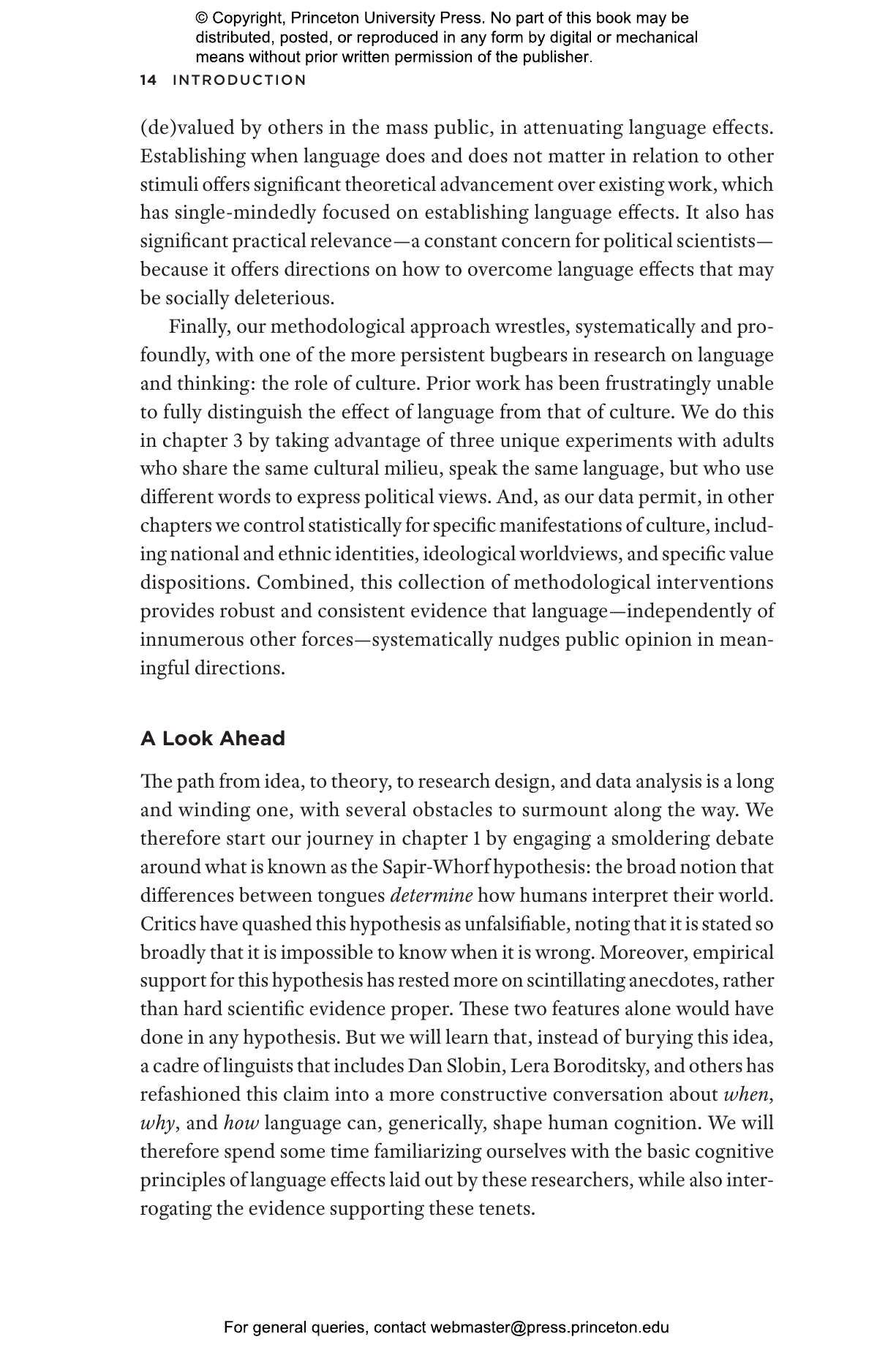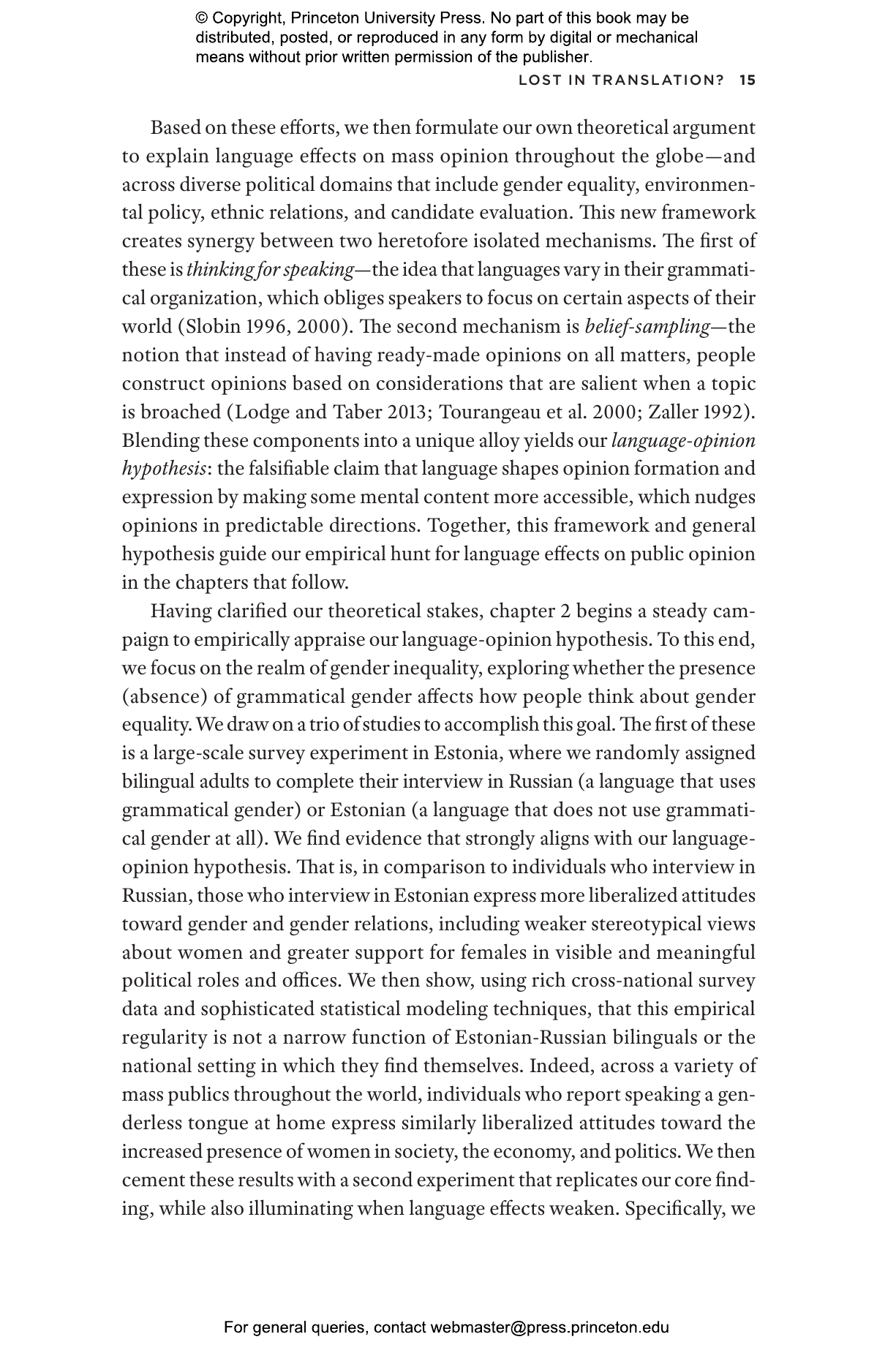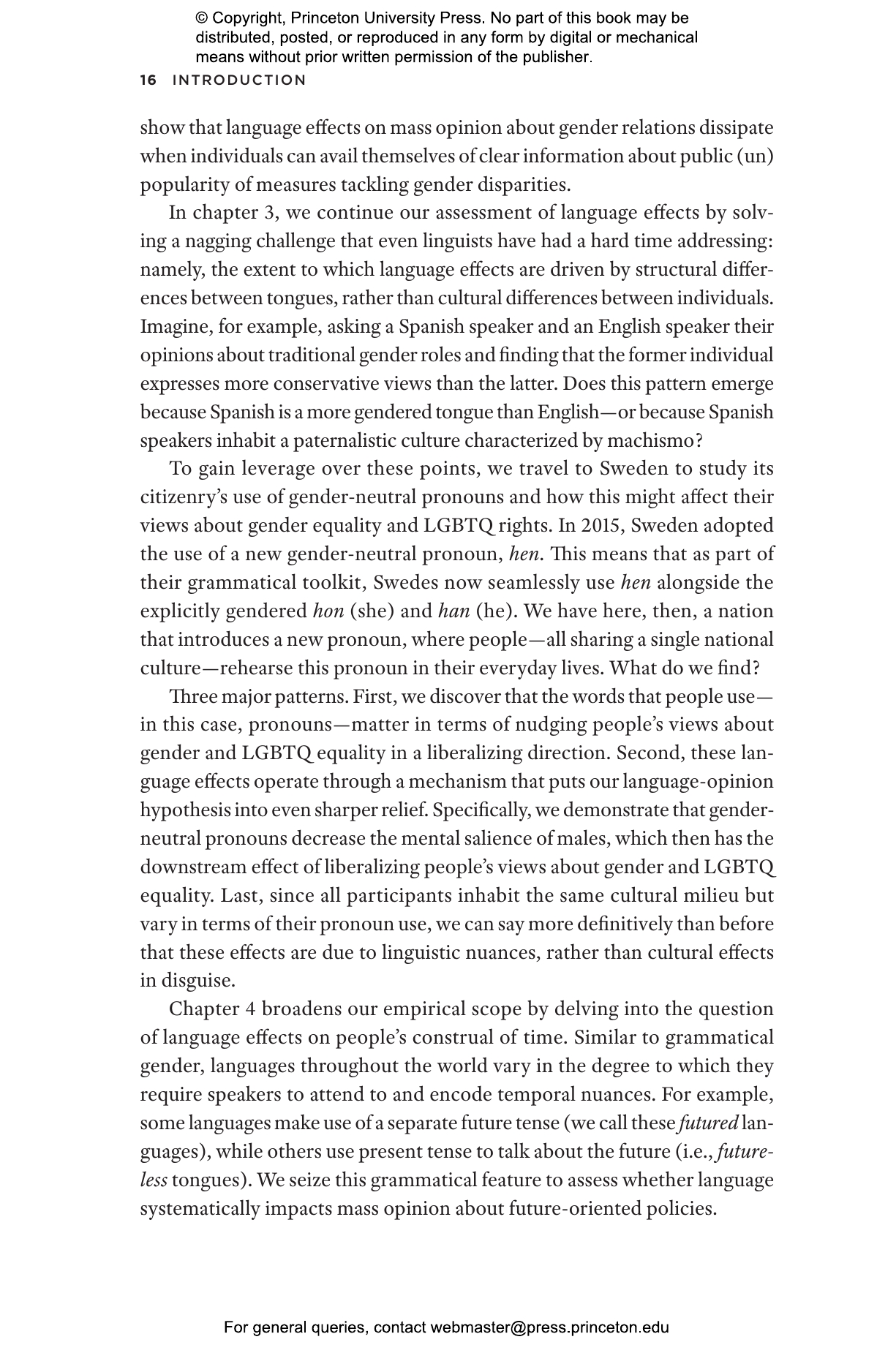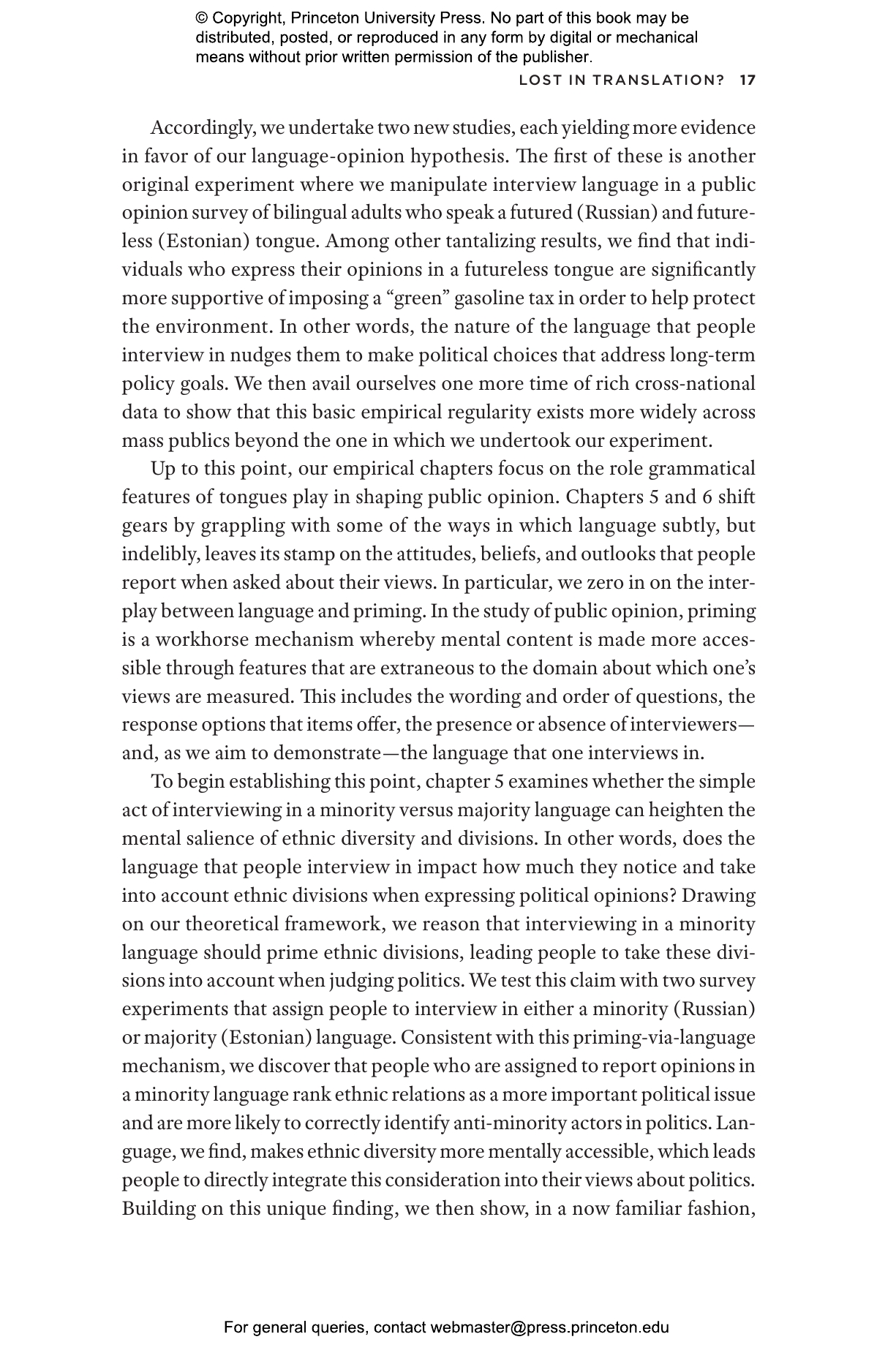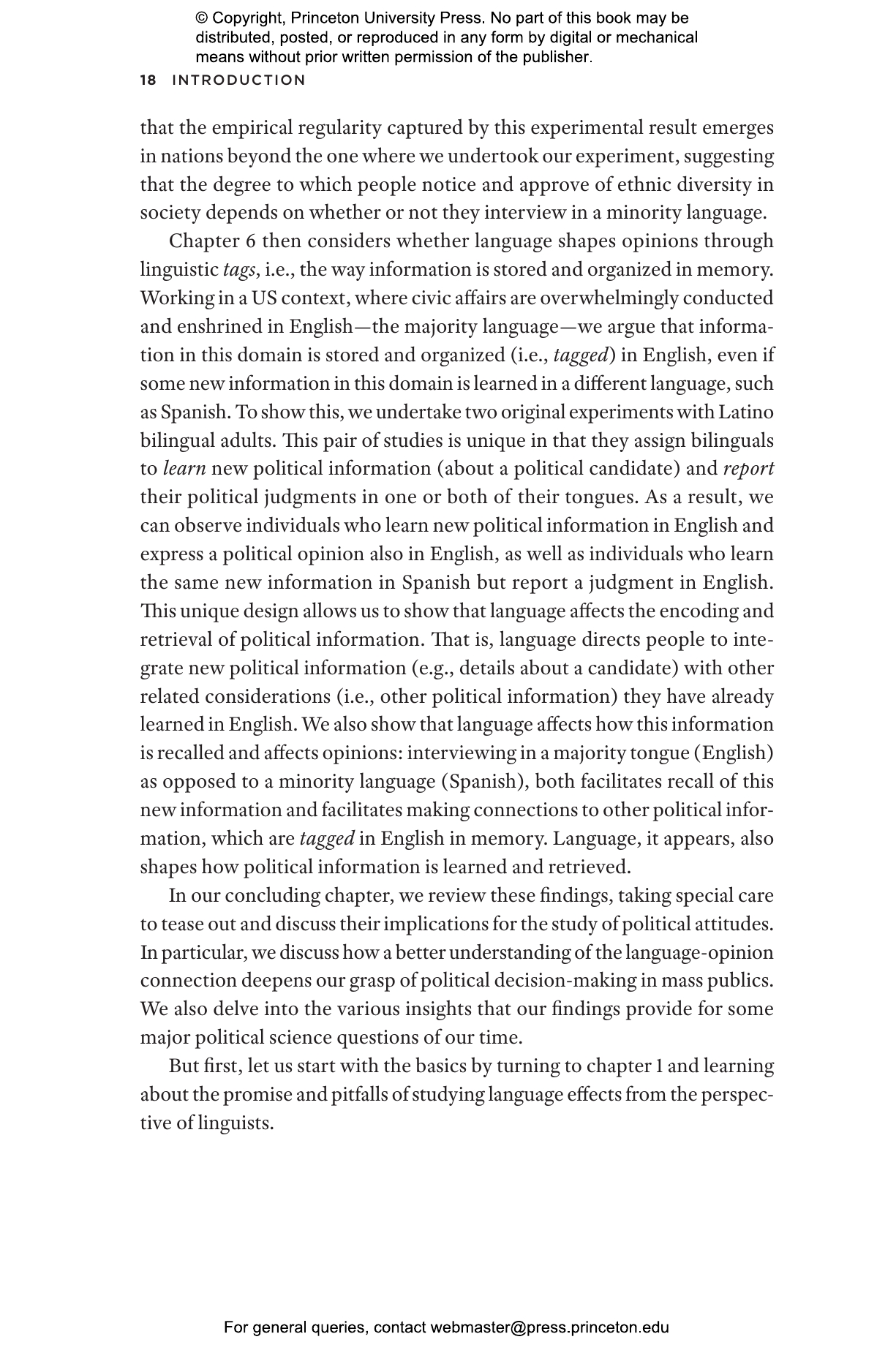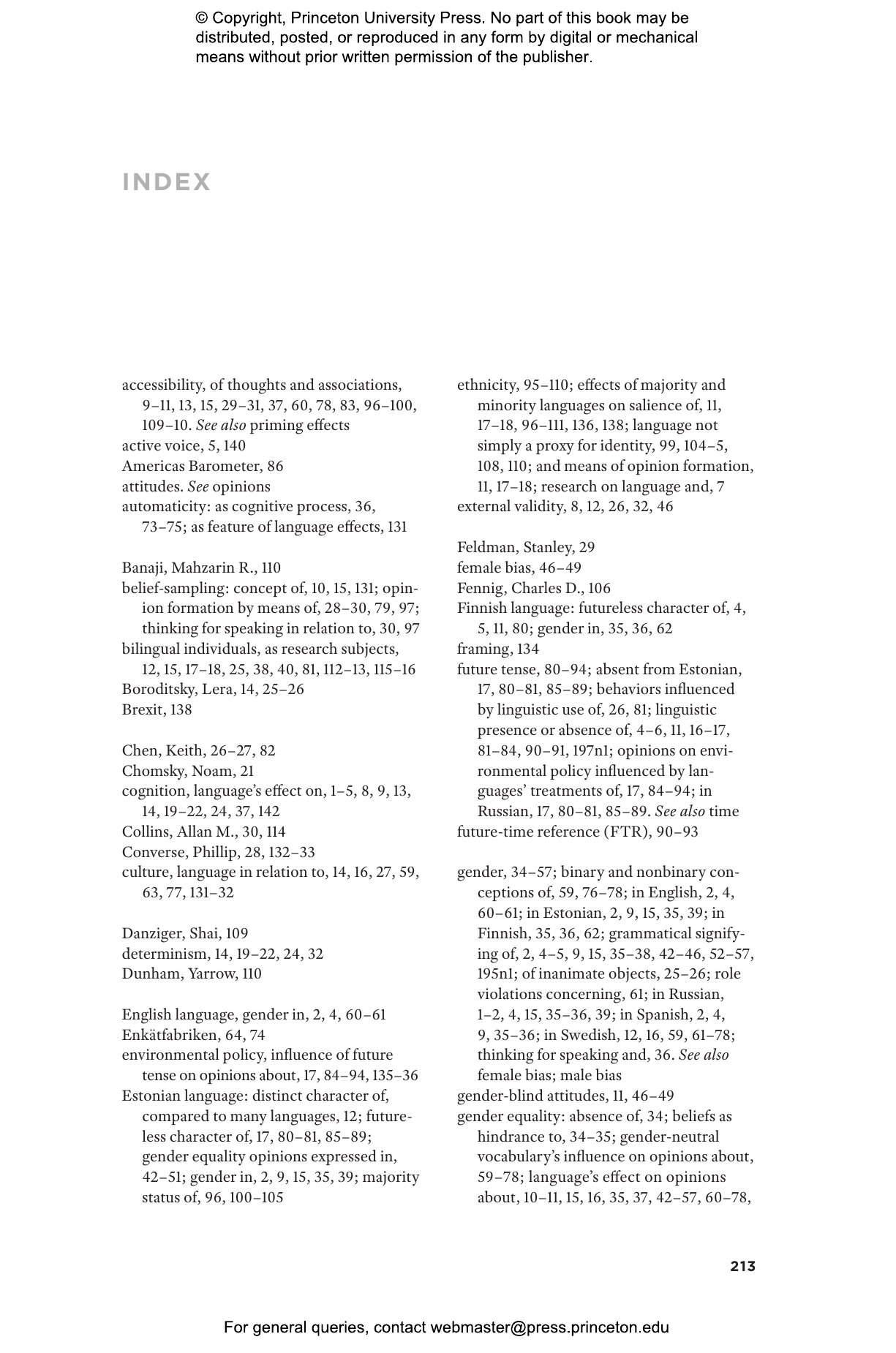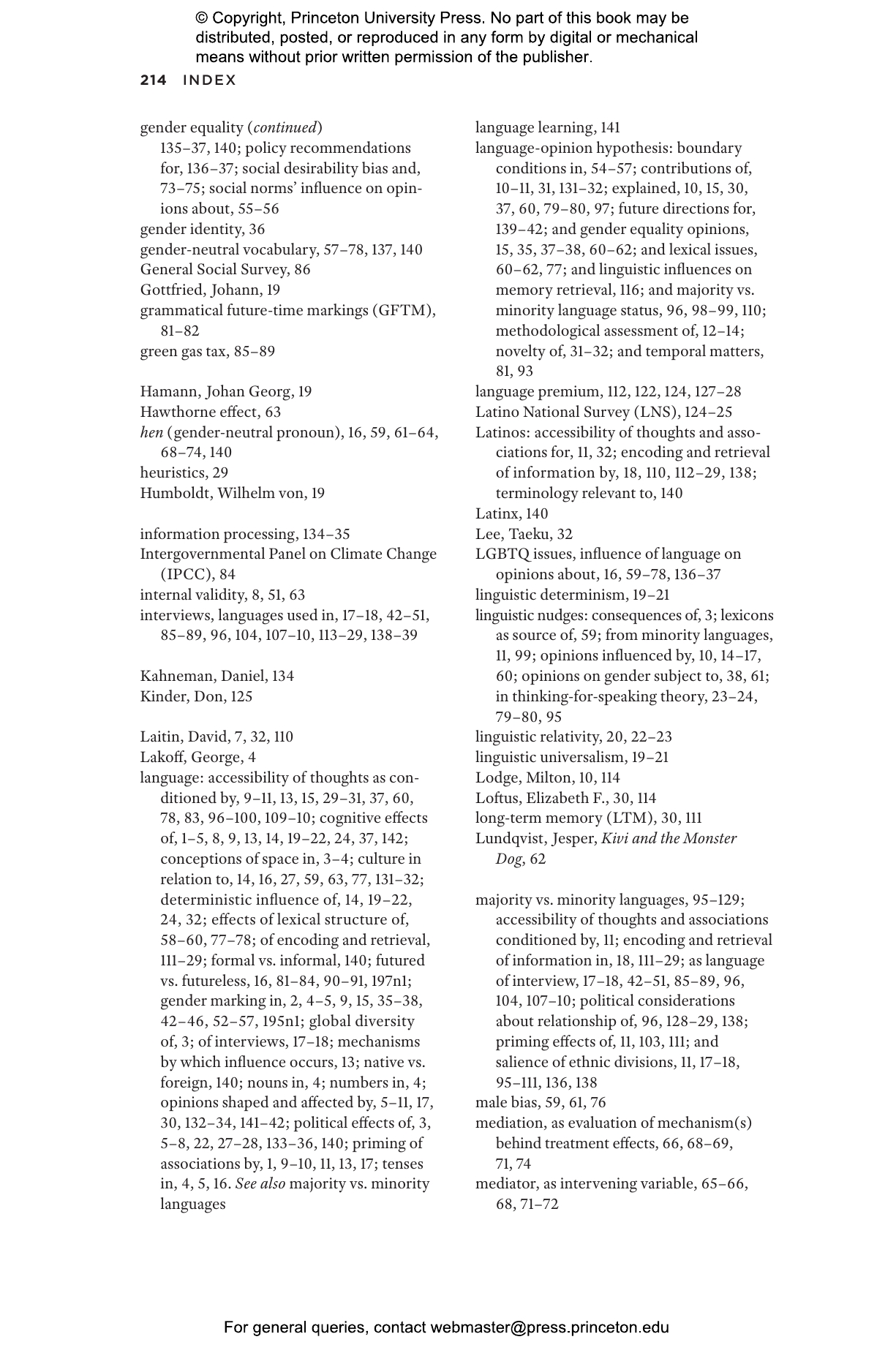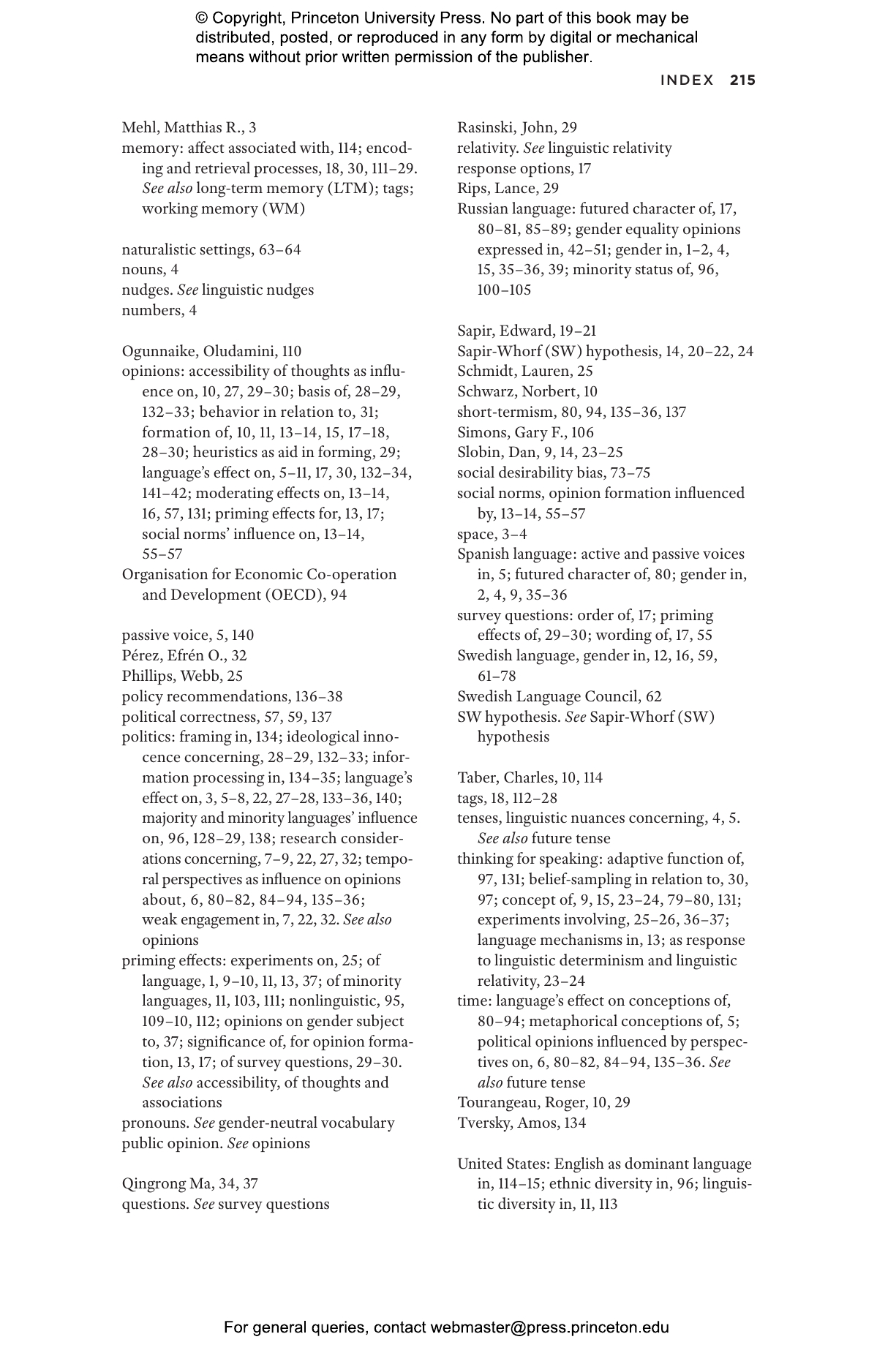Voicing Politics: How Language Shapes Public Opinion
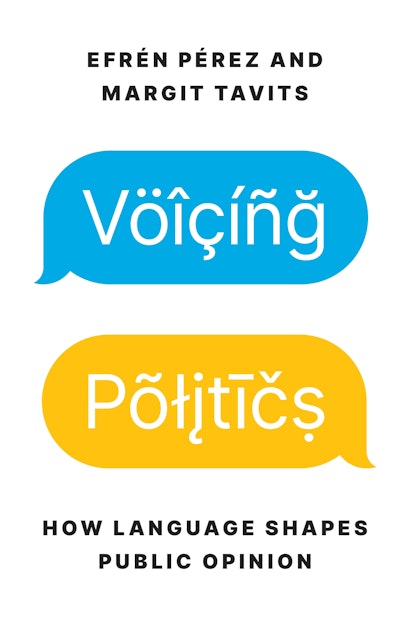

Hardcover
Paperback
- Price:
- $35.00/£30.00
- ISBN:
- Published (US):
- Oct 25, 2022
- Published (UK):
- Nov 15, 2022
- Copyright:
- 2023
- Pages:
- 232
- Size:
- 6.13 x 9.25 in.
- 10 b/w illus. 39 tables.
- Main_subject:
- Political Science
ebook
Voicing Politics brings together the latest findings from psychology and political science to reveal how the linguistic peculiarities of different languages can have meaningful consequences for political attitudes and beliefs around the world. Efrén Pérez and Margit Tavits demonstrate that different languages can make mental content more or less accessible and thereby shift political opinions and preferences in predictable directions. They rigorously test this hypothesis using carefully crafted experiments and rich cross-national survey data, showing how language shapes mass opinion in domains such as gender equality, LGBTQ rights, environmental conservation, ethnic relations, and candidate evaluations.
Voicing Politics traces how these patterns emerge in polities spanning the globe, shedding essential light on how simple linguistic quirks can affect our political views. This incisive book calls on scholars of political behavior to take linguistic nuances more seriously and charts new directions for researchers across diverse fields. It explains how a stronger grasp of linguistic effects on political cognition can help us better understand how people form political attitudes and why political outcomes vary across nations and regions.
